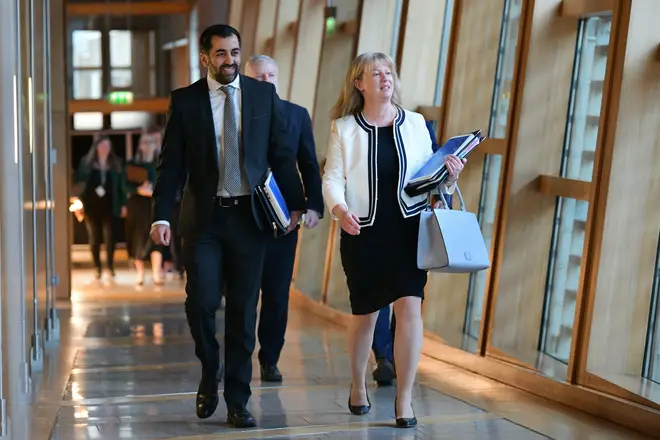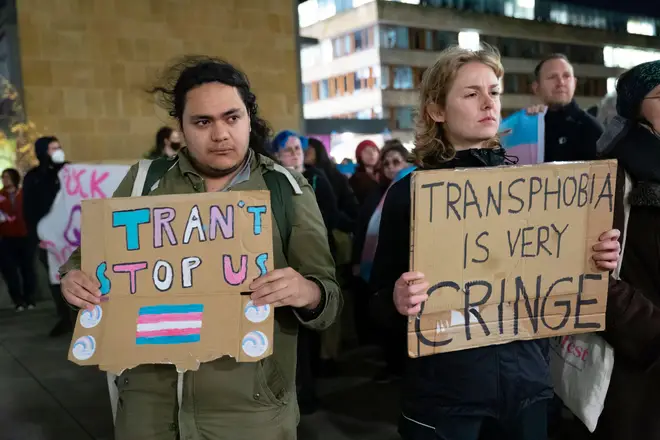
Iain Dale 7pm - 10pm
20 December 2023, 11:26

Scotland has dropped a legal battle with Westminster to make it easier for children change their gender from the age of 16.
Humza Yousaf's SNP administration launched an appeal after the British government blocked the Scottish government's reforms in January.
But the Scottish government lost the case when a judge dismissed the appeal earlier in December.
Deputy First Minister Shona Robison said on Wednesday that the Scottish government would not lodge any more appeals.
The changes would have simplified the process for transgender people to get their gender recognition certificate (GRC) and officially change their gender.
Read more: 'This almighty row over Scotland's gender recognition reforms was entirely avoidable'

The process, known as self-ID, would have let people as young as 16 get a GRC without a medical diagnosis.
The bill was passed in Scotland by a majority of MSPs, but the British government ensured it did not get royal assent, meaning it did not pass into law.
The government feared that it would impact on UK-wide equalities law.
Ms Robison said on Wednesday that it was a "difficult decision" not to pursue any more appeals.

Tom Swarbrick puts former First Minister of Scotland on the spot after trans prisoner row
"We took all of the factors in the round, around what the case and what the prospects of the case would be, as well as all the other considerations and the impact indeed on the trans community," she told BBC Scotland.
"So, we've made that decision for all of the reasons that we have set out," Ms Robison said.
She added: "The point here is that Scotland's democratic institution overwhelmingly supported a piece of legislation that is within devolved competence.
"And because the UK Government and the Secretary of State for Scotland didn't like it, he thought he could ride roughshod over the democratic wishes of this Parliament."
But Ms Robison vowed to "robustly defend" the powers of the Scottish Parliament.

Announcing the British government's block of the Scottish bill in January, Mr Jack said: "I have decided to make an order under section 35 of the Scotland Act 1998, preventing the Scottish parliament's Gender Recognition Reform (Scotland) Bill from proceeding to royal assent.
"After thorough and careful consideration of all the relevant advice and the policy implications, I am concerned that this legislation would have an adverse impact on the operation of Great Britain-wide equalities legislation.
"Transgender people who are going through the process to change their legal sex deserve our respect, support and understanding. My decision today is about the legislation's consequences for the operation of GB-wide equalities protections and other reserved matters.
"I have not taken this decision lightly.
"The bill would have a significant impact on, amongst other things, GB-wide equalities matters in Scotland, England and Wales. I have concluded, therefore, that this is the necessary and correct course of action."